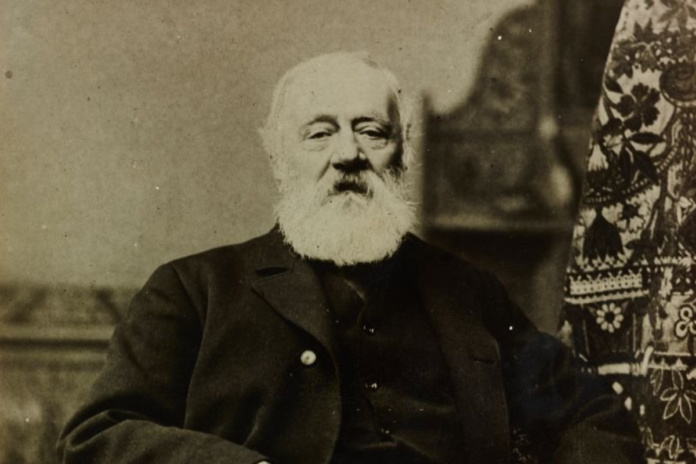The story of the telephone often begins with Alexander Graham Bell, but the true origins date back to Antonio Meucci, an Italian inventor and scientist whose work laid the foundation for modern telecommunications. From early experimentation with sound transmission to battling financial and personal hardships, Meucci’s story is both inspiring and tragic. This article delves into his scientific achievements, his struggles for recognition, and how his work paved the way for global communication as we know it.
Early Life and Inspiration
Antonio Meucci was born on April 13, 1808, in Florence, Italy. Raised in a modest family, Meucci showed a strong interest in science from a young age. He pursued studies in engineering and chemistry at Florence’s Academy of Fine Arts, an unusual path for someone of his background. His early career took him to Cuba, where he worked as a stage technician. It was here that Meucci began experimenting with the transmission of sound, sparking an interest that would later become his life’s passion.
Meucci’s Path to Invention
After relocating to the United States in 1850, Meucci settled in Staten Island, New York, with his wife, Ester. Struck by her ongoing illness, he sought ways to communicate with her from different rooms in their house. This led him to develop what he called the “telettrofono” — an early form of the telephone. By transmitting sound through copper wires, Meucci had created a device that allowed sound to travel over long distances.
Key Features of Meucci’s Early Inventions:
- Sound Transmission Over Copper Wire: Meucci’s device used a simple setup with copper wire to transmit sound, a principle that would later become the backbone of telephone technology.
- Practical Application for Medical Reasons: Unlike later inventors, Meucci developed the telettrofono primarily for personal use to aid communication with his ailing wife.
Challenges and Setbacks
Meucci’s life was marked by hardships that hindered his ability to secure his invention. Financial struggles plagued him, and he lacked the resources to patent the telettrofono fully. In 1871, he filed a caveat—a preliminary form of a patent—with the U.S. Patent Office. However, Meucci’s application was not maintained due to his inability to pay the renewal fees. When Alexander Graham Bell patented a similar device in 1876, Meucci was financially and legally incapable of challenging Bell’s claim, losing what many consider his rightful place in history.
Meucci’s Struggle for Recognition
- Limited Financial Means: Meucci’s financial difficulties prevented him from securing patents, despite the innovative nature of his inventions.
- Legal Battles and Disputes: Meucci attempted to fight for recognition, but without resources, his claims were largely ignored.
Meucci’s Contributions to Science and Telecommunications
Despite his lack of recognition during his lifetime, Meucci’s work is foundational in the world of telecommunications. He was a pioneer in acoustic experimentation, laying the groundwork for telecommunication technology. His work with copper wires set standards that would be developed in telephone systems worldwide.
Lasting Contributions of Antonio Meucci:
- Advancement of Sound Transmission: Meucci’s principles of sound transmission through wires are fundamental in telecommunication systems.
- Inspiration for Future Technologies: His ideas inspired future technologies, including those used in modern telephones and communication devices.
Recognition and Legacy
Although Meucci’s work was overlooked for many years, efforts have been made to acknowledge his contributions. In 2002, the U.S. Congress passed a resolution honoring Antonio Meucci as the original inventor of the telephone, a formal recognition of his achievements. Meucci’s legacy is a reminder of the importance of innovation, resilience, and the pursuit of knowledge.
Key Milestones in Meucci’s Recognition:
- U.S. Congressional Resolution (2002): The United States acknowledged Meucci’s pioneering work in telecommunications, marking a turning point in his recognition.
- Legacy in Italian-American Culture: Meucci remains a celebrated figure among Italian-Americans and is honored for his inventive spirit and perseverance.
FAQs about Antonio Meucci
1. Did Antonio Meucci invent the telephone?
Yes, Antonio Meucci is credited with developing the first prototype of the telephone, known as the “telettrofono.” However, due to financial limitations, he could not secure a full patent.
2. Why is Alexander Graham Bell more recognized than Antonio Meucci?
Alexander Graham Bell patented his telephone in 1876, which brought him recognition as the telephone’s inventor. Meucci, lacking resources, was unable to maintain his caveat, which led to Bell being credited instead.
3. What were some other inventions by Antonio Meucci?
In addition to the telettrofono, Meucci experimented with other forms of telecommunication, although he faced numerous challenges and never fully realized their potential.
4. How did Meucci’s work influence modern telecommunications?
Meucci’s experiments with sound transmission over wires laid the foundation for telecommunication systems, influencing future technologies like the telephone.
Final Reflections on Antonio Meucci’s Legacy
Antonio Meucci’s life story is one of dedication, resilience, and passion for science. Though he faced financial hardship and limited recognition, his pioneering work remains a cornerstone of modern communication. Meucci’s legacy serves as an inspiring reminder of the countless innovators whose contributions shape our world today, often without the recognition they deserve.




